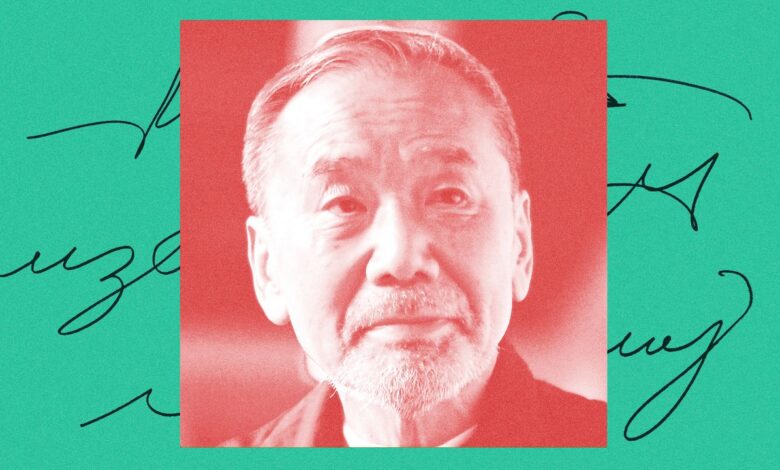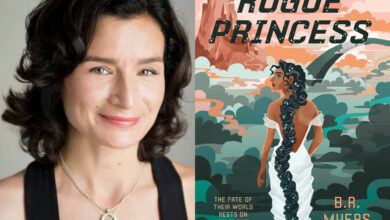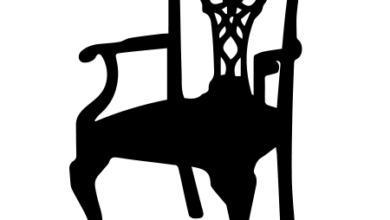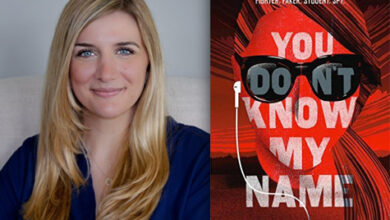Haruki Murakami on Raising Questions

In your story “Kaho,” a man goes on a blind date with a woman named Kaho and ends it with an insult, which is the first line of the story: “I’ve dated all kinds of women in my life, but I have to say I’ve never seen one as ugly as you.” Was that the moment in the story that came to you first? Did you build the story around it?
That’s exactly right. That was the first scene that occurred to me. There’s a man who seems quite pleasant, on a date with a woman in a very pleasant sort of restaurant, and, as soon as they finish dessert, he intentionally insults the woman. Why does he do that? What’s the point? And how does the woman react to it? That’s what I wanted to know. The story began from that.
I wrote this story specifically for a public reading, and I needed to capture the audience’s attention from the first paragraph. I’m sure they were quite surprised by what they heard.
As the man in the story—who is named Sahara—says these insulting words, he is smiling “a gentle, mostly friendly smile.” Why is it so disturbing when a person’s facial expression and body language don’t match his words?
Honestly, I don’t really understand Sahara’s thinking, either. He’s a very complex character, and his words and expressions seem finely calculated. He smiles and is soft-spoken, but something in him is seriously disturbed. There’s something dark, deep down inside him, which the reader can sense from the beginning. But it’s not easy to imagine what kind of sickness that is, what kind of darkness.
For much of the story, Kaho speculates about his reasons for insulting her in this way—as does the reader. Although Sahara offers a kind of explanation toward the end of the story, it’s not entirely satisfying (to Kaho or to the reader). Why does it stay a mystery?
My goal in this story was, first off, to present the reader with a suitably intriguing question, but my intention was never to hand down an authoritative answer to it. Instead, I think that readers should find their own response. As the author, of course, I have an interpretation, but it’s not necessarily the right one. It’s simply one hypothesis and nothing more.
I have the impression that, for Kaho, Sahara is not a total other, not a being who suddenly appeared from some alien world but more, in a sense, like her own self-image reflected in a mirror. He appears because he was meant to. This is, however, only my own personal impression.
Sahara seems to read Kaho’s thoughts; one has a sense of him as not entirely human. He’s described at one point as “an anteater licking an anthill clean”; later, he talks about spiders that eat cockroaches and marvels at how “magnificent the structure of the food chain is.” Is he a predator who gets nourishment from the destruction he causes?
That’s exactly what’s at the root of the fear Kaho experiences. The fear that maybe she’s come face-to-face with a deadly predator. And isn’t it possible that it’s the abyss of her own life that she’s staring into for the very first time?
For much of her life, she has been oblivious of or indifferent to her looks—surprisingly unconcerned about them, in a world where looks matter far too much. She is exceptional both in her lack of vanity and in her lack of self-criticism. A perfect sparring partner for Sahara, in a way. Do you think she wins the contest?
As described in the story, Kaho has lived a sort of charmed life up till now. She’s been immeasurably blessed. But someday she was bound to confront what’s lying on the reverse side of that charmed life and struggle with it. Though it’s unclear which will win, I’m hoping that the brighter side prevails.
In the end, her encounters with Sahara inspire her to produce a new children’s book, which is very successful. She has learned something about herself, which she translates into a story. Do you want the reader to see this, ultimately, as a positive moment in Kaho’s life?
Kaho’s life has only just begun. Sahara insinuates that they will meet again somewhere. Who can guarantee that Sahara (or a second Sahara) isn’t lurking there, just around the next corner?
In 2014, you published a story collection with the title and theme “Men Without Women.” Could this be the first story in a collection titled “Women Without Men”?
I don’t know what position “Kaho” will occupy in the future. I’m still interested in Kaho and Sahara, as fictional characters, and perhaps I might write a kind of sequel. Who knows? Or maybe the story ends here. I honestly don’t know what lies ahead. ♦
(Answers translated, from the Japanese, by Philip Gabriel.)
Source link



